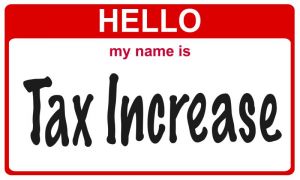Peachtree City residents won’t see their city taxes increase this year.
The city council adopted a $27.4 million budget Thursday along with a millage rate the same as last year: 6.384. That means that a handful of residents who have seen their fair market value decline will actually notice a tax decrease on their property tax bill this year.
The budget is some $238,304 higher than last year, and due to declining property values the city will get by with about $200,000 less in property tax revenue compared to the current year, city officials said.
The lion’s share of city revenues comes from property taxes and sales taxes.
The latest version of the budget features an additional reduction of $100,000 in general fund department expenses, a reduction of the public improvement plan contingency from $35,000 to $15,000 and the reduction of new police vehicle purchases from 10 to nine.
The budget also includes $240,000 for a one-time 2 percent “incentive” bonus for all city employees, who haven’t seen a pay raise in several years due to the weakened economy and tight city budgets.
Councilwoman Kim Learnard said several other factors led to about a $1 million increase in operating funds in this year’s budget, including computer upgrades in the neighborhood of about $400,000, the staff pay incentive, a $100,000 increase in healthcare costs, $70,000 for this year’s city election and another $75,000 increase in the amount budgeted for legal fees.
Also in the budget are three new staff positions including a community services director, an accounting supervisor and a marketing coordinator for the Peachtree City Convention and Visitors Bureau. The latter position will be paid for with funds from the city’s hotel tax money.
A fourth hire would be for the city’s stormwater program and would be paid for with money from that separate fund, officials said.
The budget also factors in the reduction of five positions in the recreation department as well as the reduction of one position in public works.
The city is projecting to end next fiscal year with a $1.37 million surplus that will bring the city’s cash reserves up to the $10 million mark. But the plan is to spend down those reserves over the following four years to a point where the cash reserves will reach about $7 million.
That means in the 2015-2016 budget, the city will have reduced its cash reserves to the minimum level of 20 percent of the city’s annual budget.
The city is projecting to begin this coming fiscal year with cash reserves at the 37 percent level.
Much of the reasoning for spending down the cash reserves has to do with the impending loss of funding from the 2003 countywide transportation sales tax, which means the city will again have to spend an estimated $1.5 million a year on street, road and path maintenance from the general fund.
The city is also expected to see a hit in its local option sales tax revenue due to the results of the latest U.S. Census, since the unincorporated area of the county and its other cities have grown somewhat faster. The local option sales tax is based largely on each jurisdiction’s percentage of the entire county population.
Both of those financial hits are expected to occur in the 2012-2013 fiscal year.
Council members had high praise for city staff in developing this year’s budget, and Councilman Eric Imker said he felt it was one of the city’s best-ever budgets.
Imker noted that behind the scenes this year, department directors and chiefs had to explain their budget line item by line item to justify their inclusion in the final budget. Because of that process, Imker said he was confident that the city budget contains no waste and “we are as lean as we can be.”
Imker also suggested, but later withdrew, a proposal to pay out the incentive bonuses to employees in two phases: with half being paid in December and the other half in May. That way, he said, the city could be covered in case revenues decline further than projected, Imker said.
It was noted that splitting up the payments, which would be equal to 2 percent of each employee’s salary, would affect morale.
Imker suggested waiting until November to make a decision on the matter.










Leave a Comment
You must be logged in to post a comment.